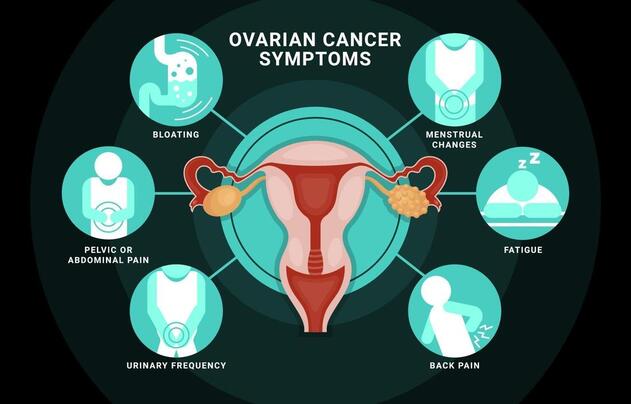Introduction:
As September comes to a close, it's crucial to shed light on a topic of immense importance: Ovarian Cancer. Ovarian Cancer Awareness Month aims to educate and empower individuals about the signs and symptoms of this silent but potentially deadly disease. Early detection is key to improving survival rates and quality of life for those affected. In this blog, we'll delve into the warning signs of ovarian cancer, equipping you with knowledge that could potentially save lives.
1. Persistent Abdominal or Pelvic Pain:
One of the early warning signs of ovarian cancer is persistent discomfort or pain in the lower abdomen or pelvis. This pain may be ongoing and not related to menstruation, digestive issues, or physical activity.
2. Bloating or Feeling of Fullness:
Women with ovarian cancer often experience persistent bloating or a sensation of fullness even after eating small amounts. This can be accompanied by a visible increase in abdominal size.
3. Difficulty Eating or Feeling Satiated Quickly:
Another sign to be aware of is a change in eating habits. Women may find it challenging to consume their usual amounts of food, feeling full quickly, or having difficulty finishing a meal.
4. Frequent Urination:
If you notice an increase in the frequency of urination, particularly if it's accompanied by other symptoms, it's essential to consult a healthcare professional. Ovarian cancer can exert pressure on the bladder, causing these changes.
5. Changes in Bowel Habits:
Persistent changes in bowel movements, such as constipation, diarrhea, or changes in stool consistency, could indicate a potential issue in the pelvic region, including the ovaries.
6. Unexplained Weight Loss or Gain:
Sudden and unexplained weight loss or gain without changes in diet or exercise should be investigated. This could be a symptom of ovarian cancer or other underlying health issues.
7. Fatigue:
Chronic fatigue that doesn't improve with rest can be an early warning sign of ovarian cancer. Listen to your body and seek medical advice if you experience persistent exhaustion.
8. Back Pain:
Constant lower back pain, unrelated to injuries or muscle strain, can sometimes be linked to ovarian cancer, especially if accompanied by other signs on this list.
9. Changes in Menstrual Cycle:
Any significant changes in menstrual patterns, such as irregular periods, heavier or lighter bleeding than usual, or post-menopausal bleeding, should not be ignored.
10. Pain During Intercourse:
Ovarian cancer can cause discomfort or pain during sexual intercourse. If this is a new or persistent issue, consult a healthcare provider.
Conclusion:
Ovarian cancer often remains undetected until it reaches an advanced stage, underscoring the critical importance of recognizing warning signs early on. By familiarizing yourself with these signs and symptoms, you can take proactive steps towards early detection, potentially saving lives and spreading awareness beyond Ovarian Cancer Awareness Month. Stay informed, stay vigilant, and prioritize your health.





 RSS Feed
RSS Feed


